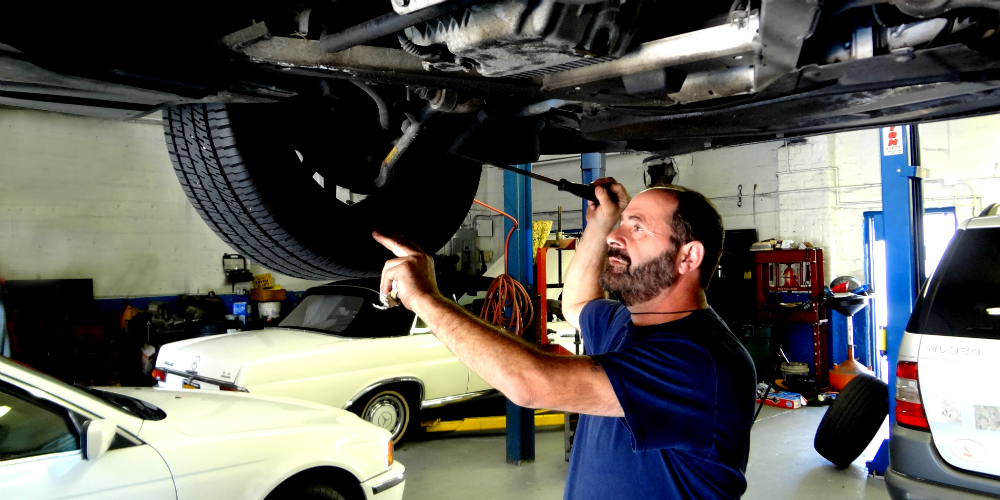All Categories
Featured

[/image]
Brakes are probably the most essential security feature of any automobile. Without trustworthy brakes, also the most powerful cars and truck can come to be a threat on the roadway.
- The Importance of Regular Brake Inspections. Brakes go through continual wear and tear with every usage, whether you're driving at high rates on the freeway or travelling via city streets. With time, brake pads, blades, and various other components put on down, which can affect braking performance. Without normal evaluations, you may not discover the progressive reduction in efficiency up until it's also late.
Regular brake inspections permit you to capture issues early, making certain that your brakes remain receptive, trusted, and safe. Timely assessments can additionally save you money by resolving small concerns prior to they end up being expensive repairs.
- Typical Indications That Your Brakes Need Attention. While regular brake assessments are very important, there are some indication you can watch out for to know when it's time to arrange a check-up:
Squeaking or Grinding Seems: Shrill squeaks or grinding sounds when applying the brakes are often signs that your brake pads are broken and require replacement. Resonance or Pulsation: If you really feel vibrations in the guiding wheel or the brake pedal, it can show deformed rotors, which may need resurfacing or changing. Soft or Mushy Brake Pedal: If the brake pedal feels uncommonly soft or mushy, there might be air in the brake lines or an issue with the master cyndrical tube. Pulling away: If your cars and truck pulls to one side while stopping, this can be brought on by unequal brake pad wear or an issue with the brake liquid. Boosted Quiting Distance: If it takes longer to stop than usual, it may suggest that the brake pads are put on, the liquid is reduced, or the blades are damaged. If you see any one of these signs and symptoms, it's ideal to have your brakes checked promptly.

- Trick Components Checked Throughout Brake Inspections. During a brake assessment, a specialist will check numerous important parts of the braking system to make certain every little thing is functioning properly. Here are the essential parts entailed:
Brake Pads: One of the most common reason for bad stopping performance is worn-out brake pads. Examining the thickness of the pads is a concern during every assessment. Brake Rotors: Blades should be smooth and devoid of grooves or fractures. Any kind of substantial damages to the rotors could result in endangered stopping performance and irregular pad wear. Brake Liquid: Reduced or polluted brake fluid can impair braking performance. The service technician will check the fluid degrees and high quality and change it if needed. Brake Lines and Hose pipes: Brake lines need to be totally free of leaks or splits. Any damage to the lines can cause loss of brake liquid, leading to brake failure. Brake Calipers: The calipers apply pressure to the brake pads. They must be evaluated for signs of wear or leaks to ensure they are functioning appropriately. Regularly checking these components aids maintain your brake system in peak problem, enabling you to quit your automobile safely and effectively.
- Exactly how Frequently Should You Have Your Brakes Inspected? The general suggestion is to have your brakes examined a minimum of as soon as a year or every 12,000 miles, depending upon your driving practices. Nonetheless, particular driving conditions may need more regular examinations:
Heavy Web Traffic: If you typically drive in stop-and-go traffic, your brake pads will certainly put on down much faster. Mountain Driving: Driving on steep roadways calls for more frequent stopping, which can cause your brakes to wear quicker. Towing or Hauling Heavy Loads: If you routinely carry hefty tons, your brakes will experience more tension and require more regular examinations. If you discover any of the warning signs mentioned earlier, do not wait on the following scheduled assessment-- have your brakes inspected promptly.
- The Consequences of Ignoring Brake Inspections. Disregarding regular brake assessments can lead to major consequences. A stopping working brake system might result in reduced stopping power, which boosts your danger of mishaps.
In the most awful situation, driving with harmed brakes can lead to complete brake failure, putting you and other vehicle drivers at risk. Regular brake evaluations are a little financial investment that can conserve your life and avoid expensive fixings.
- Verdict: Keep Safe with Routine Brake Inspections. Brakes are not something you want to take chances with. A trusted braking system is essential for risk-free driving, and normal brake examinations are a basic means to make certain that your car stops when you require it most. By staying on top of brake upkeep, seeing for warning indications, and having your brakes examined at the recommended intervals, you'll protect both your vehicle and your safety.
Do not wait up until your brakes begin to fail-- routine regular brake examinations and keep your automobile in optimal condition for years ahead.
Latest Posts
Discover WyHy Federal Credit Union – Exclusive Benefits for Your Financial Success
Why Routine Vehicle Maintenance at Montclare Auto Repair Keeps Your Wallet Happy
Seamless Aluminum Rain Gutters: The Smart Selection for Your Home
More
Latest Posts
Discover WyHy Federal Credit Union – Exclusive Benefits for Your Financial Success
Why Routine Vehicle Maintenance at Montclare Auto Repair Keeps Your Wallet Happy
Seamless Aluminum Rain Gutters: The Smart Selection for Your Home